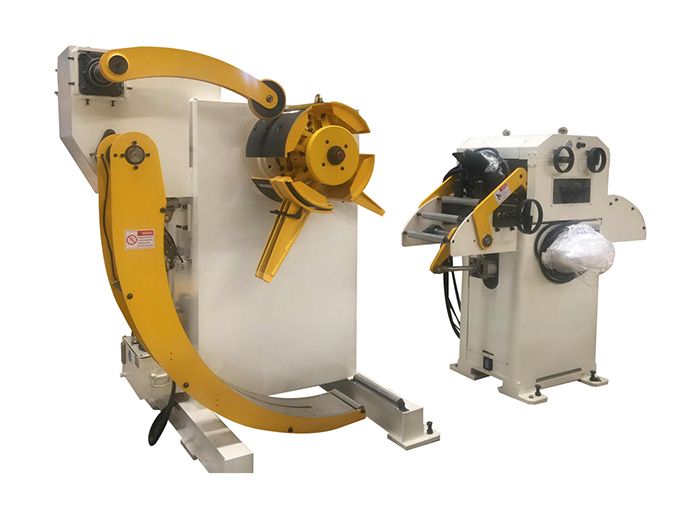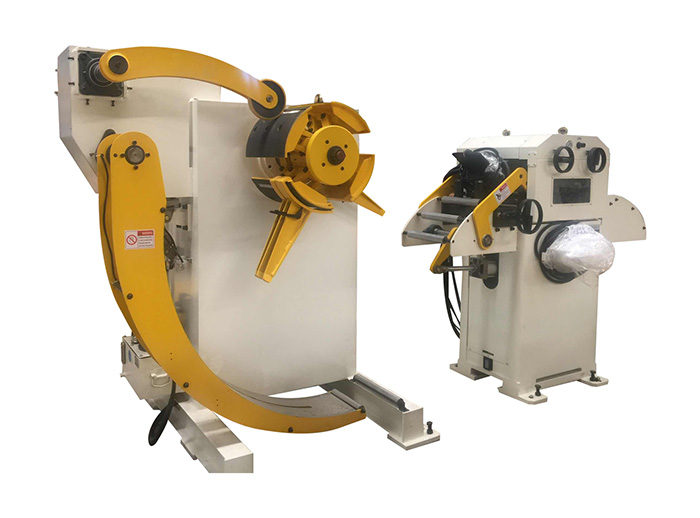How To Choose Decoiler Straighteners?

Decoiler straighteners are essential machines for those who need to process metal coils into straightened sheets.
Decoiler straighteners are essential machines for those who need to process metal coils into straightened sheets. When selecting a decoiler straightener, there are several factors to consider to ensure you choose the best one for your needs. Here are some key considerations to help you choose a decoiler straightener.
Coil Capacity:
One of the most critical factors to consider when selecting a decoiler straightener is the coil capacity. The coil capacity refers to the maximum weight and width of the metal coil that the machine can handle. You need to choose a decoiler straightener that can handle the size and weight of the coils you will be working with. If you use a decoiler straightener that is too small, you will not be able to process larger coils, and if it is too big, you will not be able to process smaller coils.
Material Type:
Another important factor to consider when choosing a decoiler straightener is the type of material you will be processing. Decoiler straighteners are designed to work with a range of metals, including stainless steel, aluminum, and copper. You must choose a machine that is compatible with the metal you will be working with. For example, if you plan to work with thicker materials, you will need a more robust machine than if you were working with thinner metals.
Hydraulic Decoiler Straightener
Straightening Capability:
When selecting a decoiler straightener, you must consider its straightening capability. Different machines can provide different levels of straightening, and the degree of straightening you require will depend on your application. If you need high precision straightening, then you will need a machine that can deliver that level of accuracy.
Speed:
The speed of the decoiler straightener is also a crucial factor to consider. The speed at which the machine processes the coil will depend on the application and the size of the coil. If you need to process large coils quickly, then you will need a faster machine. It is essential to balance speed with accuracy to ensure that you get the best results.
Automation:
Decoiler straighteners can come with different levels of automation. Some machines are fully automated, while others require manual intervention. If you are working with large volumes of coils, then you may want to consider a fully automated machine. Automation can help to reduce labor costs and increase productivity.
Maintenance:
Like any machine, decoiler straighteners require maintenance. When choosing a machine, you need to consider the maintenance requirements and how easy it is to access the critical components. Machines that are difficult to maintain can result in costly downtime and lost production.
Floor Space:
The size of the machine is also a crucial consideration. You need to ensure that the machine will fit in your workspace and that you have adequate room to operate it safely. It is also essential to consider the weight of the machine and whether your floor can support it.
Brand:
The brand of the decoiler straightener is also important. You want to choose a machine from a reputable brand that has a history of producing high-quality machines. Choosing a well-known brand can also ensure that you have access to technical support and replacement parts.
Price:
Finally, the price is an important factor to consider. Decoiler straighteners can vary in price, depending on the features and capabilities. You need to ensure that you choose a machine that fits within your budget but still meets your requirements.
In summary, choosing a decoiler straightener requires careful consideration of several factors. You need to consider the coil capacity, material type, straightening capability, speed, automation, maintenance, floor space, brand, and price. By taking the time to evaluate these factors, you can choose a machine that meets your specific requirements and helps to improve your productivity and efficiency.



